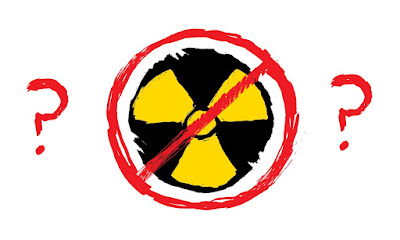Much of the Western press and leadership are portraying the East-West conflict over Ukraine as a temporary issue that will be quickly remedied by regime change against what they see as problematic leaders like Russian President Vladimir Putin. In some ways, they are correct.
Since the end of the original Cold War, the main tension in the world was emerging in the North-South relationship, not the East-West conflict, making the current geopolitical situation something of an anomaly. Except for direct contests over hegemony, the main struggle in the world has always been between the exploiter and exploited, or the ruler and the ruled.
War against the Global South
With wars mainly being "interventions" targeting Global South nations like Iraq and Libya, and the Global North having a distinct advantage, able to project the image of itself as a global policeman under the authority of the United Nations Security Council, for a time it seemed as if a simmering North-South conflict was becoming the accepted reality.
The alterations to the language of war in the 1990s and early 2000s to speak of humanitarian intervention, rogue states, terrorism and global policing showed a shift, conscious or otherwise, to waging wars on the economically undeveloped nations. Military technology and wargames changed to target lightly armed resistance groups, rather than peer opponents.
What is happening now, with the renewal of conflict between the West and Russia, is an unexpected hiccup in the dominance of the Global North and especially the Western powers. Russia had essentially been considered a solved problem and a defeated enemy for over thirty years, and the West had moved on to other targets. Russia refusing to be dead, and being capable of challenging the West again, is a potentially fatal impediment Western goals.
The wrong battle
For the West to now be bogged down in a contest with Russia essentially means that the Global North is unable to fight the battle it wanted to fight, namely a battle to maintain dominance over the Global South. The West is mainly responsible, failing to create Global North alliance structures that would include Russia and potentially even China in a world order that would see the North dominate the South.
The selfishness of, very probably, individual politicians and thought leaders in the United States and United Kingdom is most likely to blame for the failure of the Global North to form a united front against the Global South (a godsend for the peoples of the latter). It seems like the idea of having Russians and Chinese as part of the club was just unacceptable to English-speaking elites, who would prefer that the "civilised" world and its economically vital activity are only led by people who look and sound like them.
Russia and China are essentially too "developed" now to be considered an economic periphery that can be conquered or exploited by the West. Countries like India, Pakistan and Iran can also increasingly be considered "developed" and don't really fall into the "Third World" stereotype either, as they may have done in the past.
What next?
While there may be attempts by the East and West to use the Global South as a proxy battlefield again, like they did in the original Cold War, the degree of resistance there against all such interference will likely increase. The Global South was on the rise in its own right, with an increasing willingness of local regimes to defy any expression of global authority or global good, and instead take possession of their own resources. Leaders such as Chavez, Morales, Gaddafi and others were not anomalies but part of a trend that was sure to continue, and will continue.
Even if Western regimes are not impeded much, or Russia and China are quickly disposed of and the Global North falls under Anglo-Saxon authority, their attempts to police and control the Global South will still go severely awry. We will still see terrorism, devastating wars and refugee flows that, in addition to climate change, will complicate Western dominance. They will be unable to pacify the populations of the Global South, who will continue to elect leaders who defy foreign exploitation and dominance. As such, even the most optimistic forecast for the West is one of war, waste, misery and the defeat of global hegemony in the long term.
The thousand cuts to the globally dominant Western powers were already going to be a death sentence for it, even without the West encountering a resurgent Russia and having to fight an intra-North battle.
While the war in Ukraine may be sad for people with blonde hair and blue eyes, it offers much-deserved relief for some people of the Global South. Perhaps they may be spared, for a time, from being the focus of murderous rampages by the supposedly civilised West. The situation in Ethiopia seems to have calmed around the time the conflict grew in Ukraine. We should be mindful, however, that the Western-inflamed humanitarian disaster in Yemen is unabated. As the wars in Bosnia showed us, violence may briefly return to the Global North, but is almost continuously exported to the Global South.











